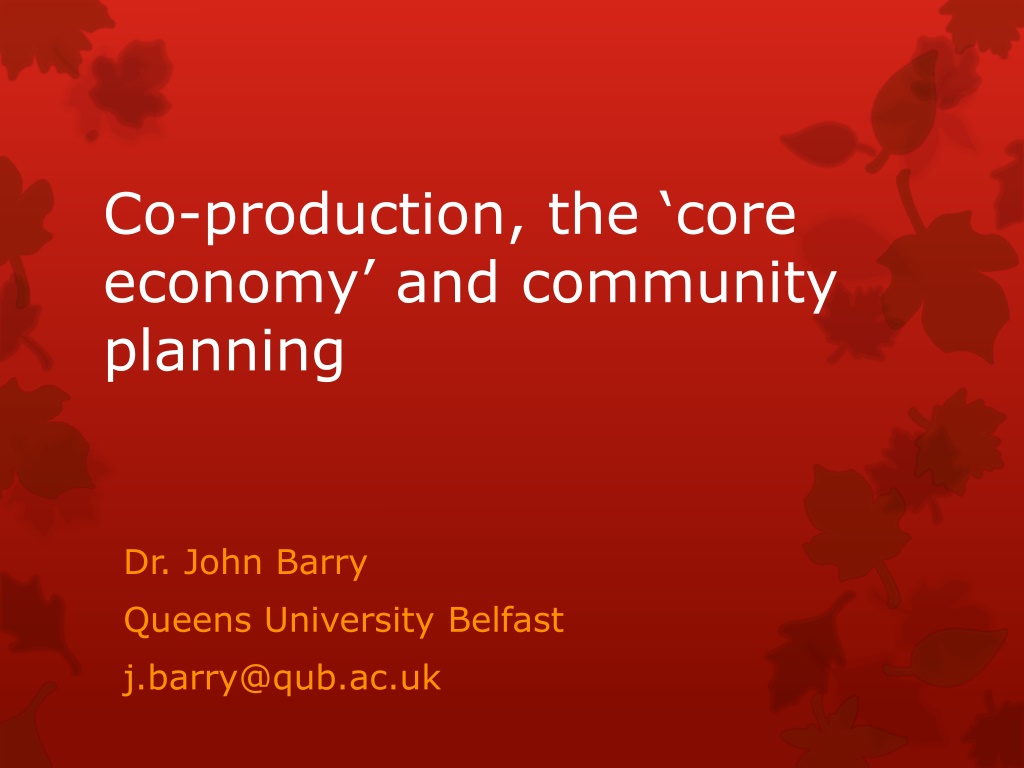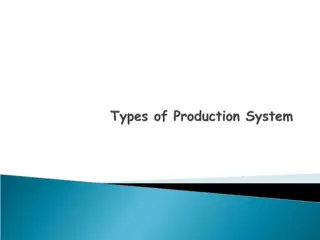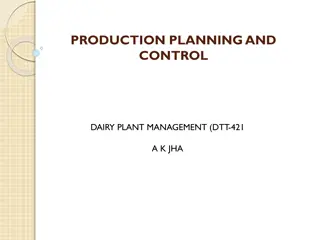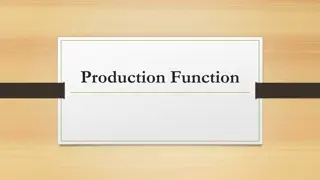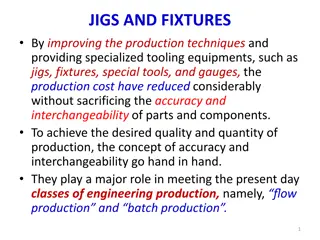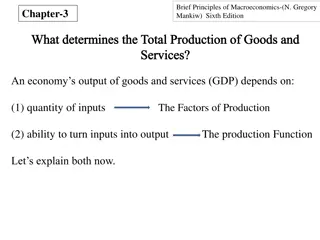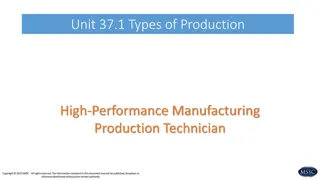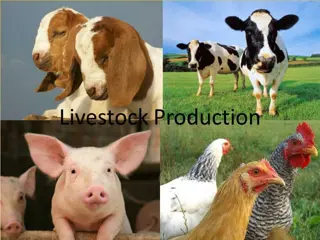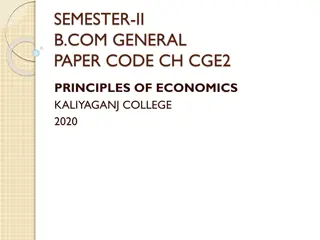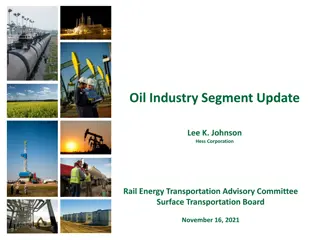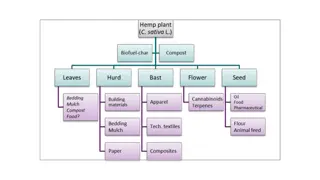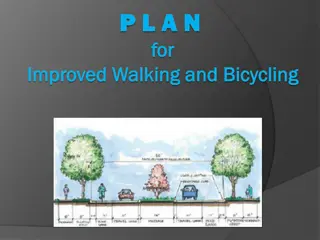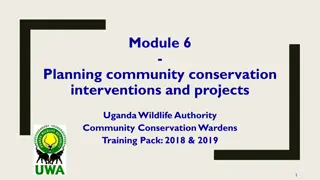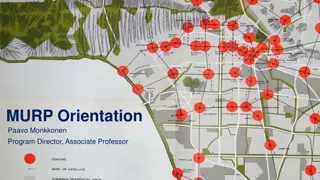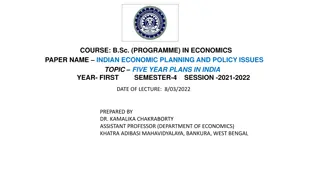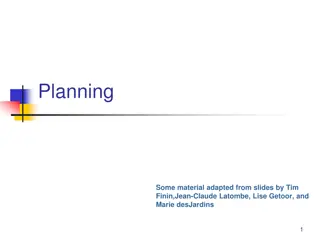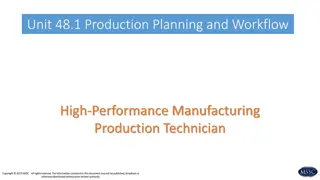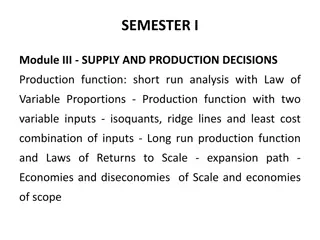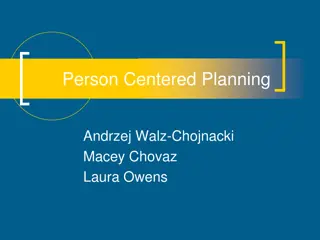Understanding Co-Production in Community Planning
Explore the concept of co-production and its role in community planning, emphasizing the collaboration between professionals, service users, and neighborhoods for effective change. Learn about asset-backed community development, empowering individuals and communities to reach their goals by leveraging their strengths and resources.
Download Presentation

Please find below an Image/Link to download the presentation.
The content on the website is provided AS IS for your information and personal use only. It may not be sold, licensed, or shared on other websites without obtaining consent from the author. Download presentation by click this link. If you encounter any issues during the download, it is possible that the publisher has removed the file from their server.
E N D
Presentation Transcript
Co-production, the core economy and community planning Dr. John Barry Queens University Belfast j.barry@qub.ac.uk
Basic co-ordinating institutions of human society (Nation)-State 300-400 years Market truck and barter (c.12,000 years/settled agriculture), modern industrial/capitalist economy (c.250 years) Community since we evolved as a species of homo sapiens (c.50,000 years)
Co-production and the core economy Distinguishing between employment and work/labour not all socially necessary labour is monetised i.e. is not formally paid employment (public or private); The hidden economy upon which the formal (public and private sector) economy is based; Different terms core economy , convivial economy informal economy , social economy not all same but all gesture towards productive labour/activity that is beyond the public/state and private/market economy
The economy from a different perspective
Co-production: what is it? Co-production means delivering public services in an equal and reciprocal professionals, people using services, their families and their neighbours. Where activities are co- produced in this way, neighbourhoods become far more effective agents of change. relationship between both services and new economics foundation The involvement of citizens in the delivery of public services to achieve outcomes, which depend at least partly on their own behaviour and the assets and resources they bring (Boviard, 2012)
Asset backed community development and empowerment Every person and every community is of value and has something to contribute. The task for statutory agencies is to work with people and communities to identify and build on the assets they have, helping them to set their goals and aspirations and assisting them to achieve them. Genuine partnership working
Assets=Resources=Strengths Financial money, credit, savings; Buildings schools, church halls, roads; Social kith & kin, community, trust, networks of support; Tools/equipment, books. IT, etc. TIME!! Personal health & well being, education, experience, skills, motivation, self esteem; Natural environment, energy, natural resources, greenspaces; Political influence, power, active citizenship; Access is not equal, there are barriers beyond individual control
Beyond orthodox economic thinking Because GDP measures only monetary transactions related to the production of goods and services, it is based on an incomplete picture the human economy. The human economy is a sub-system of larger social networks and ecosystem A co-production perspective offer a more complete picture of how the human economic system fits within the social and environmental systems upon which it depends By including the non-monetary social (and very often gendered) context of core economic activity
The Core Economy and Quality of life Beyond GDP and conventional economic measurements Measuring what matters GDP/economic growth does not distinguish between positive and negative economic activity (judged in terms of human well- being) Core economy helps support relationships and social capital and in that process helps better public services
Community planning and the core economy Co-production Values the capacity, skills, knowledge connections and potential in a community sees citizens and communities as co- producers of health and well being (and) instead of doing things for people shares power and helps a community to do things for itself (Improvement and Development Agency, 2010) Community planning: Opportunity for asset backed community development Asset mapping what are the capacities, skills, etc. of the community?
Co-production and community planning Building on people s existing capabilities: altering the delivery model and mindset within public services from a deficit approach to one that provides opportunities to develop people s capabilities at an individual and community level; People as active citizens : and neither passive consumers or rate/tax payers and also co-production and community planning as ways to repoliticise and democratise public services; Valuing and promoting active citizenship (sometimes oppositional) as a form of caring/care labour for democracy Reciprocity, transparency and mutuality: offering people a range of incentives to engage which enable reciprocal relationships with professionals and with each other, where there are mutual responsibilities, agreed expectations and greater degrees of transparency and communication
Co-production and community planning Partnership between statutory and non-statutory organisations: relations of equality, respect and mutual learning and sharing. Experts/professionals on tap not on top : as facilitators of community change not drivers of it Importance of trust and partnership not wasting people s time and energy, beyond passive consultation on service delivery towards genuine and demonstrable participation and co-decision-making Creating resilient and empowered communities
Conclusion Co-production and community planning: from no taxation without representation to no taxation/public service provision without participation ?
Some resources Co-production practioners network: www.coproductionnetwork.com New economics foundation: http://www.neweconomics.org/
